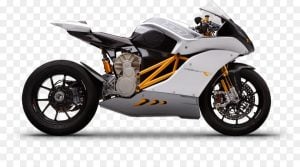Should You Trust Consumer Reports Motorcycle Reliability Study?
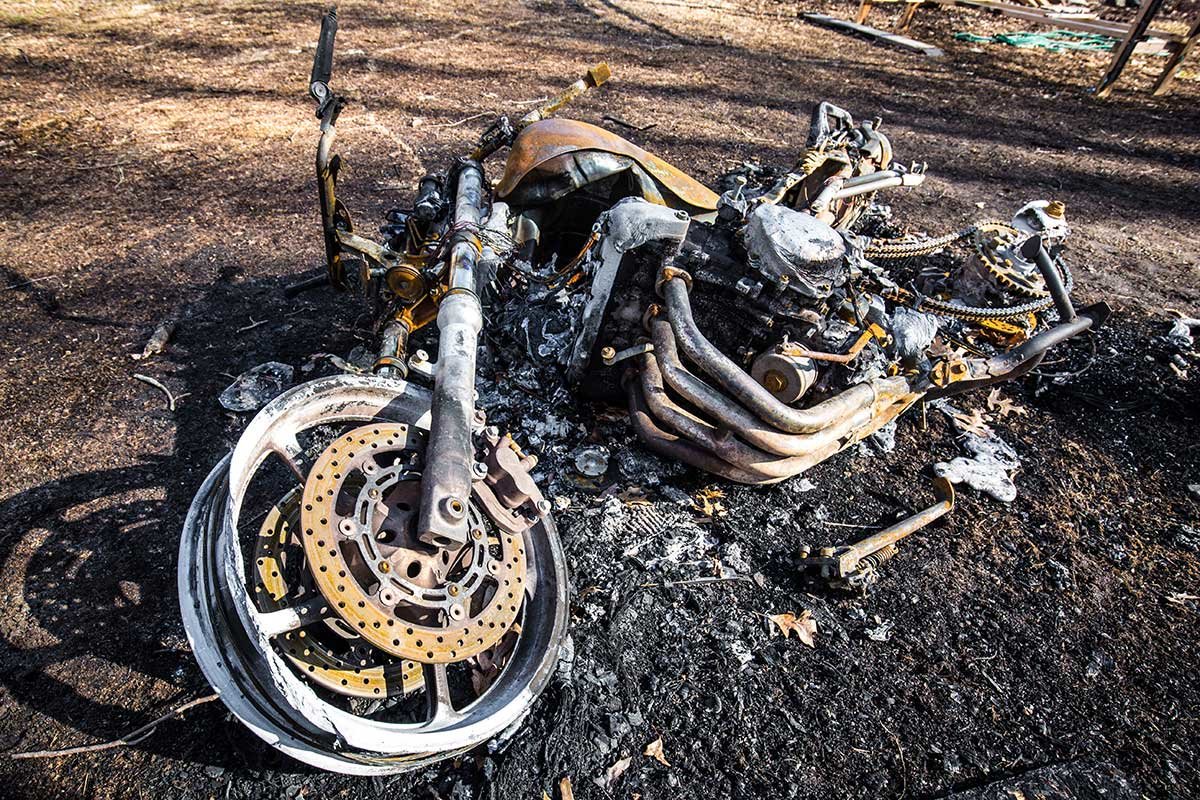
Posted By
Clint Lawrence, founder of Motorcycle Shippers. Helping give riders more freedom to enjoy the bikes they love. [email protected]
Should the Consumer Reports Motorcycle Study Impact Your Decision to Buy or Sell?
For what seems like eternities, Consumer Reports has been viewed as the gold standard for rating the top products across various industries. But when it comes to gauging motorcycle reliability, does that same notion apply?
In 2015, Consumer Reports National Research Center surveyed more than 11,000 riders who purchased 12,300+ new motorcycles between 2008 and 2014. The study asked them to answer two key questions: Did they experience any problems and repairs, and if so, which ones? And at the end of the day, were they satisfied with their purchase?
Here’s what you need to know about the Consumer Reports Motorcycle Reliability Study that’s been popping up in countless news articles over the last few years—including whether these findings should impact your decision to buy, sell or reassess the value of your bike.
The study’s reliability findings
Overall, Japanese brands were the most reliable—at least as far as the study’s motorcycle owners were concerned. Yamaha, Suzuki, Honda and Kawasaki had the lowest failure ratings, all under 16%. On the other side of the spectrum were Triumph, Ducati, BMW and Can-Am. Can-Am owners reported a whopping 42% failure rate by the fourth year of ownership.
The Consumer Reports Top 5 Most Reliable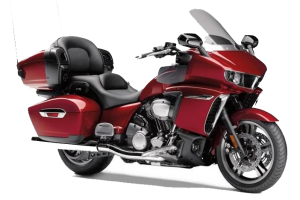
- Yamaha/Star (11% failed)
- Suzuki (12% failed)
- Honda (12% failed)
- Kawasaki (15% failed)
- Victory (17% failed)
In the survey, nearly half of German BMW owners said their bikes 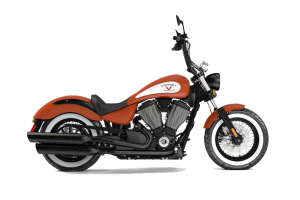
The study’s satisfaction findings
We’ve seen the Consumer Reports study pop up in multiple places—often reporting on just the failure rates and not the satisfaction part of the survey. But as any motorcycle owner will tell you, there’s a lot more to the ride than just mechanics alone, which makes the owner satisfaction findings worth including here.
About 80% of Victory owners in the survey said they’d buy the same bike again. Overall, 72% of Harley owners responded in kind, placing the brand near the head of the pack in satisfaction despite its “middle of the road” reliability rate in the study. Honda trailed closely behind in satisfaction, with 7 in 10 owners saying that they’d make the same decision if they had to do it all over again. The other brands in the study had below 70% in satisfaction.
How does the survey stack up with motorcycle trends? In 2017, roughly 472,000 motorcycles were purchased in the U.S., a number that reflects the long-term impact of the recession. Wisconsin-based Harley generated more than $5.5 billion in revenue in 2017. Honda, the third safest and most reliable in the study, has sold about 313,000 motorcycles to customers in North America already in 2018. And the highest safety-ranked brand in the study, Yamaha, sold 5.4 million motorcycles worldwide last year—a 4.6% jump from sales in 2016.
Taking the study with a grain of salt
At first glance, these survey results seem pretty helpful, whether you’re buying a new bike or calculating the value of your current ride. And it seems that news outlets agree, as they’ve touted the Consumer Reports motorcycle study in countless articles over the 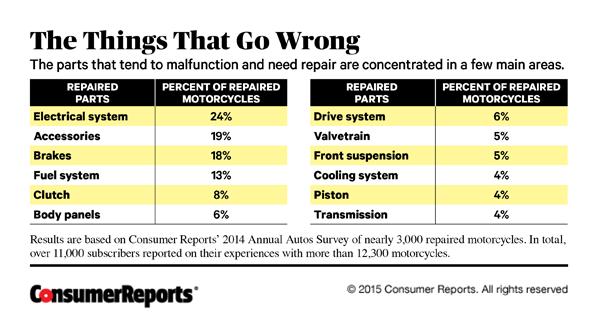
Simply put, judging whether a bike is the right one for you is a lot more complex—and personal—than a bunch of failure or satisfaction ratings.
A few other things to keep in mind when reviewing the Consumer Reports study:
- As Motorcyle.com rightfully notes, the study doesn’t clearly define what qualifies as a “failure.” (And I don’t have to tell you that there’s a big difference between a “quick fix” and an issue that keeps you off the road for days or even weeks.)
- Forces like brand loyalty and the “passion over practicality” mindset are often much bigger indicators of whether you’ll be happy with your decision to buy or sell
- Reliability testing takes time, and there’s no guarantee that issues will arise in the magic time frame given in this study
- A few years have passed since the survey was conducted, so the results may not reflect current motorcycle landscape
Reliability is a crucial factor to consider when buying a motorcycle. But for passionate riders like us, choosing a bike is a complex decision that will, hopefully, be one we’re satisfied with for many years and rides to come. And that boils down to a wide range of factors—from comfort and expected maintenance costs to brand, resale value and a host of personal preferences that no survey or study can sum up.
What matters most to you when deciding to buy or sell your motorcycle? How did your brand of choice fare in the Consumer Reports study?

